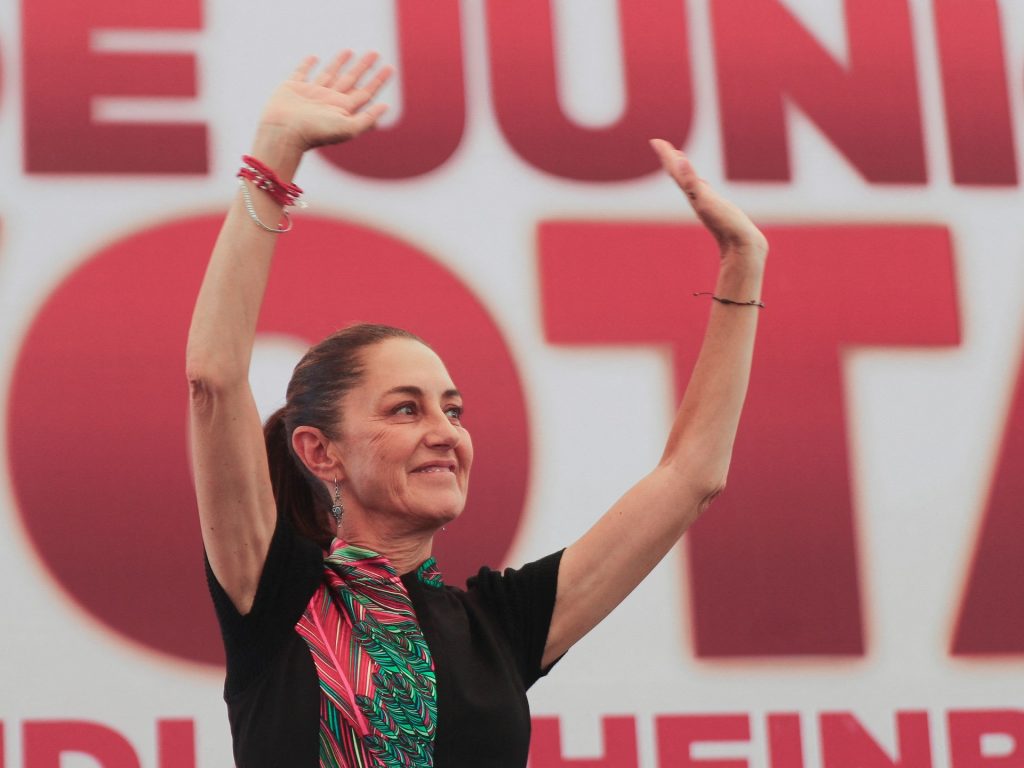Claudia Sheinbaum, a candidate for Mexico’s Morena party, is poised to become the country’s first female president. She faces the challenge of distinguishing herself from her political mentor, current President Andres Manuel Lopez Obrador, known as AMLO. While Sheinbaum has campaigned in Lopez Obrador’s image, experts believe her personal history and past governing experience offer clues about how her presidency might differ. She is seen as disciplined and strategic, likely to be less radical than AMLO.
Sheinbaum comes from a mix of academics and politics, with a background in physics and energy engineering. She was inspired by her parents’ involvement in student activism during the 1968 protests. She transitioned into a political career under Lopez Obrador’s wing, serving as his environment secretary and later as mayor of Tlalpan. In 2018, she became the first woman elected to lead Mexico City, resigning the post in 2023 to seek the presidency.
Sheinbaum’s campaign for the presidency is buoyed by the popularity of Lopez Obrador, as he is barred from running for a second term. Sheinbaum’s solid lead in the polls and academic background project a different public image than Lopez Obrador’s dark-horse campaign in 2018. She has been criticised for her privileged background, with opponents like Xochitl Galvez highlighting her elite upbringing. She is viewed as a pragmatist rather than a firebrand, with scripted public appearances in contrast to Lopez Obrador’s off-the-cuff style.
Despite facing criticism that she is a puppet of Lopez Obrador, Sheinbaum has refuted these claims and adopted many of his signature moves. She released a list of 100 commitments similar to Lopez Obrador’s upon taking office, including anti-poverty initiatives and infrastructure projects. One of the most scrutinised aspects of her platform is her stance on climate change, which includes promoting renewable energies, despite criticism for not addressing fossil fuel emissions.
Security is a top concern for Mexican voters, with Sheinbaum and her rival Galvez promising to address the country’s crime and violence issues. Sheinbaum has cited her track record as head of Mexico City’s government and criticised the “war on drugs” as an “absurd, terrible decision.” Critics fear her continuation of Lopez Obrador’s policy of military expansion may lead to abuses and corruption. Families of missing persons in Mexico are divided on Sheinbaum, with some expressing disappointment in her lack of acknowledgment of their cause, while others see hope in her potential as Mexico’s first female president.
In conclusion, Claudia Sheinbaum’s campaign for Mexico’s presidency is marked by her attempt to differentiate herself from her mentor, Andres Manuel Lopez Obrador. She is seen as disciplined, strategic, and less radical than AMLO. Her academic background, past governing experience, and commitment to addressing issues like climate change and security give insights into how her presidency may differ from her predecessor’s. Despite criticisms and challenges, Sheinbaum remains a frontrunner in the presidential race, offering a potential shift in Mexico’s political landscape as the country’s first female president.















